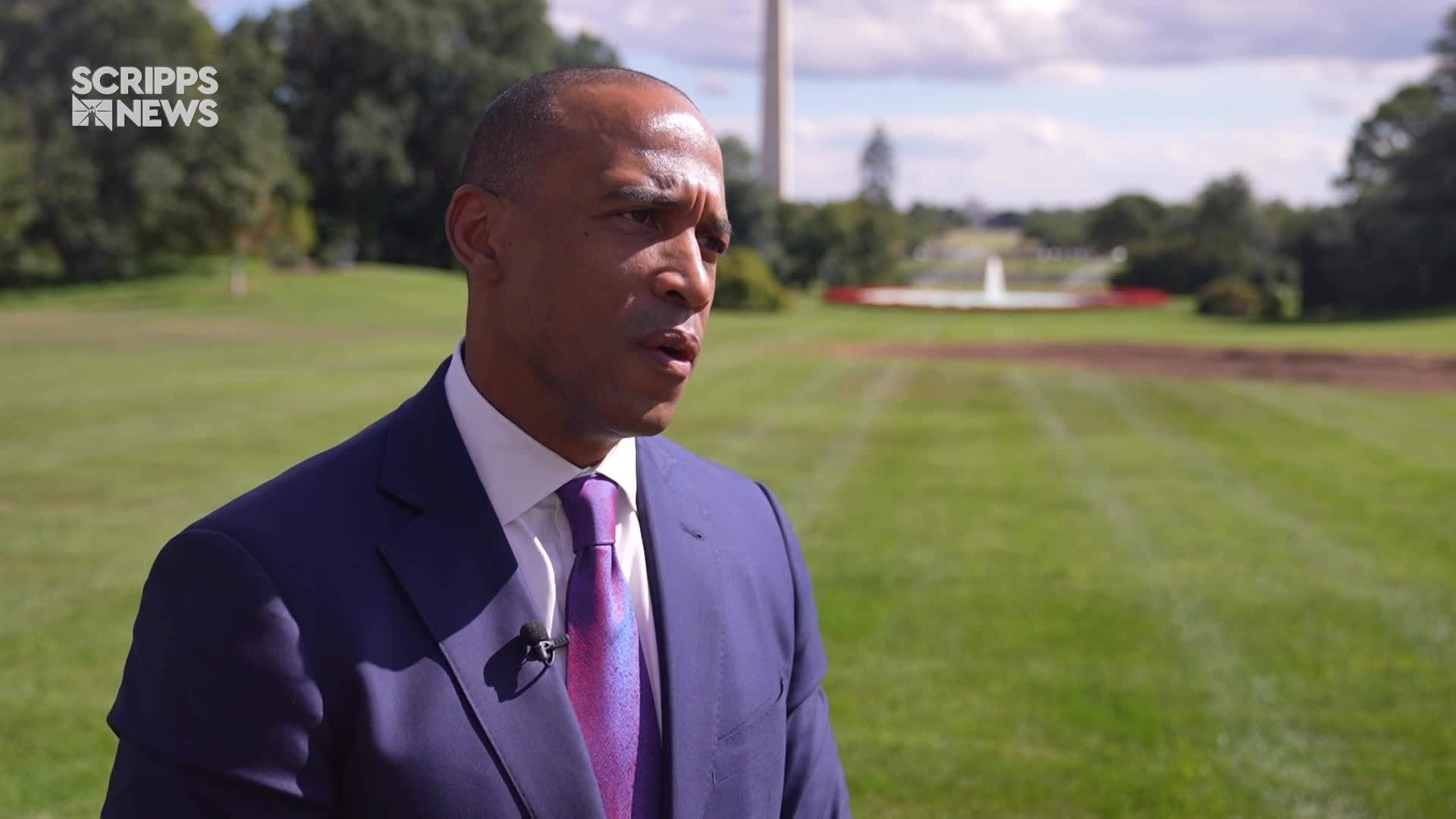Secretary of Housing and Urban Development Scott Turner is touting a “paradigm shift” in the Trump administration’s approach to homelessness, as officials pursue new limits to public housing benefits and seek to shift the burden of housing support away from the federal government and towards nonprofit and faith-based groups.
In an interview with Scripps News, Turner said the administration is focusing on public-private partnerships, working to make it easier to build relationships with faith-based entities and approaching homelessness from a “holistic standpoint.”
“The federal government is not the answer,” Turner argued. “The real answer is in the private sector. It's in these faith-based entities and institutions, and we've seen them around the country that are not only housing, okay, our homeless friends and neighbors, but bring[ing] in wraparound services. To look at it from a holistic standpoint, because ‘housing first’ doesn't work.”
Pressed if that shift is taking place in D.C. — as the federal government’s takeover of local police has resulted in the clearing of dozens of homeless camps — Turner said, “it’s part of it,” pointing to homelessness statistics from the previous administration.
“Different plays are being called, different mindset. Not only get people off the streets, but help people to get healed, help people to be transformed, and then really use it as a trampoline for people to live lives of self-sustainability. And so that's the mission, that's the strategy that we're implementing as we speak,” Turner added.
Teams have cleared 49 encampments in Washington, D.C. since the start of the federal operation, according to a White House official. The White House has said homeless individuals impacted are being offered mental health and addiction support services, though they've declined to answer questions as to which specific programs they're offering or where the individuals are being moved.
Asked whether nonprofits and faith-based entities throughout the country have the resources to accept a greater role in caring for homeless populations, Turner argued they emphatically do.
“We do have enough infrastructure,” he told Scripps News. “We have enough infrastructure. We have more than enough funding. We just had the wrong mindset prior to this administration coming in.”
Yet homeless advocates and housing organizations say the opposite is true.
Watch Below: Scripps News White House Correspondent Haley Bull's full interview with HUD Secretary Scott Turner
Jesse Rabinowitz, who works with the National Homelessness Law Center, said Turner’s comments were “downright insulting.”
“Providers, social service agencies [and] faith-based congregations are doing the best they can with really limited resources, but thanks to the Trump administration, more people are going to be pushed into poverty and homelessness,” Rabinowitz told Scripps News in an interview. “There's not enough funding, there's not enough social workers, there's not enough support, there's not enough housing and there's certainly not enough infrastructure. I think this shows how out of touch Secretary Turner is with what's actually happening in D.C.”
Ahead of the Trump administration’s federal takeover of Washington, D.C., the president signed an executive order suggesting that "shifting homeless individuals into long-term institutional settings for humane treatment through the appropriate use of civil commitment will restore public order.”
The order encourages civil commitments for those with mental illness who are living on the streets or are unable to care for themselves, and directs HUD to increase accountability in grants for homelessness assistance and end so-called "housing first" policies.
Those policies — endorsed by a majority of homeless-serving organizations — prioritize immediate, unconditional access to housing for homeless people, while also providing mental health and substance use support services.
Meanwhile, the Trump administration’s budget proposal for fiscal year 2026 includes a two-year cap on rental assistance for "able-bodied adults," and seeks to transform the "current federal dysfunctional rental assistance programs into a state-based formula grant."
Policy researchers said these limits would only increase homelessness.
A recent report from the Center of Budget and Policy Priorities, a think tank in Washington, D.C., found more than three million Americans could face eviction or homelessness should the proposed public housing limits become law, with more than half of those impacted being children.
“None of these proposed changes are going to help people,” Rabinowitz said. “They're going to push more people into poverty and more people into homelessness. And that seems consistent with the Trump administration's goal.”
However, Turner said he is not concerned that a time limit on housing benefits would increase homelessness, and spoke in favor of more stringent work requirements for those receiving Section 8 housing.
“It's a good thing to require that able-bodied, able-minded people who are receiving government funding, let's say HUD funding, that you are required to work, you're required to volunteer, you're required to look, feverishly, efficiently for a job. Work restores dignity, work restores honor, and that's the conversation that we're changing in our country,” Turner said.
“When you set time limits for people that are receiving HUD funding, what you're saying is, 'hey, you have two years... to be gainfully employed.' What does this do? It incentivizes people to not just become complacent, but say, 'You know what, I'm an able-bodied person. I'm an able-minded person with so much potential. I don't have to live on government subsidies,'" he added.
Turner said the administration is "still working on those definitions" when pressed on specifics as to how the work requirements might come to fruition.
Rabinowitz, meanwhile, pushed back on the notion that work requirements are needed for those receiving housing benefits.
"Most people who are getting support with housing from the government are working," he noted. "These requirements are not about who's working or not. They're about who can fill out paperwork and who can deal with red tape the most."
"It's shameful that the administration is actively considering policies that are going to make people worse off," he concluded.





